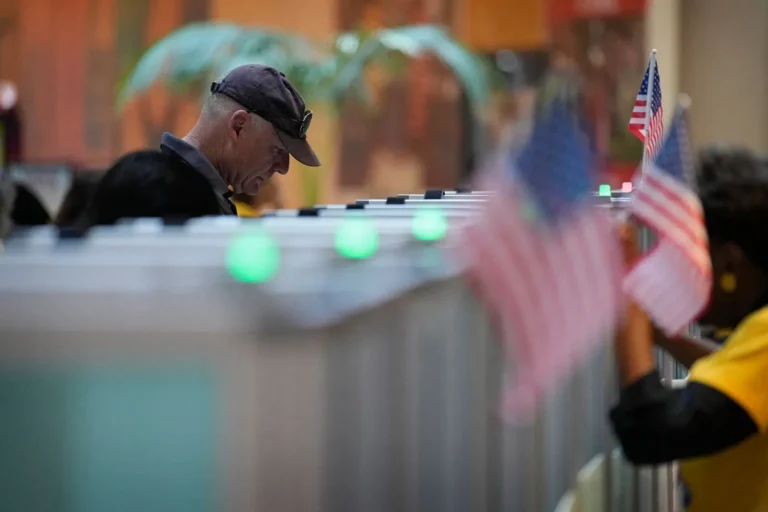The Department of Justice asked the Supreme Court on Wednesday to deny Steve Bannon‘s emergency request to delay his prison sentence, arguing the former Trump adviser did not have grounds to avoid his imminent detention.
Solicitor General Elizabeth Prelogar wrote in a court filing that Bannon, who is scheduled to begin a four-month prison sentence Monday, did not meet the “demanding” standard to justify the “extraordinary relief” he had requested from the high court.
A jury convicted Bannon of two charges of contempt of Congress in 2022 after he ignored a subpoena for a deposition and documents that the House committee investigating the Jan. 6, 2021, Capitol riot issued to him as part of its inquiry.
Bannon appealed the conviction, and a three-judge panel in the U.S. Court of Appeals for the District of Columbia Circuit unanimously upheld the charges.
The district court in Washington had initially agreed that Bannon, a leading ally of former President Donald Trump and host of the daily podcast WarRoom, could remain free while his appeals process played out. However, the forceful nature of the appellate court’s response prompted the district court to lift its temporary pause on Bannon’s sentence and instead order the defendant to report to prison.
Bannon attempted to stave off the prison order in an emergency request to the appellate court while he continued to fight his conviction. A three-judge panel denied the request in a split decision, two to one.
Bannon then asked in an eleventh-hour motion that the Supreme Court intervene days before he heads to a penitentiary in Danbury, Connecticut.
Bannon’s attorneys raised two issues in a filing with the high court that they said justified keeping the the ex-Trump adviser out of jail, at least temporarily.
First, the attorneys said, Bannon has raised a “critical issue” about “proper mens rea” in his case. They said that while Bannon did blatantly defy a subpoena from Congress, he thought he was doing so in “good faith” at the instruction of a lawyer. Despite rejections of this argument by a jury and the appellate court, it still warrants attention from the Supreme Court before Bannon goes to prison, his attorneys argued.
Second, there was an “acknowledged circuit split” regarding his emergency request, the defense attorneys wrote, pointing to the two-to-one decision in which Judge Justin Walker, a Trump appointee, said he was inclined to keep Bannon out of jail while the Supreme Court weighs his conviction.
“Any issue on which the circuits disagree is necessarily a substantial question,” Bannon’s attorneys wrote.
Regarding defense attorneys’ first point, Prelogar wrote that prior Supreme Court cases have repeatedly found that acting in “good faith” on advice from a lawyer is not a valid defense.
“A uniform line of cases from this Court confirms that the mental state for contempt of Congress under Section 192 requires only a deliberate or intentional act and does not recognize a defense for good faith reliance on the advice of counsel,” the solicitor general wrote.



